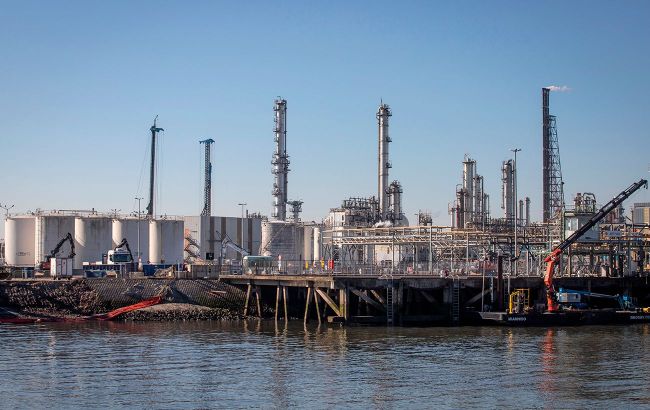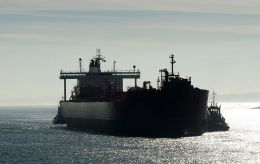Trump's tariffs and low river levels spark Europe's worst logistics crisis since pandemic
 Photo: Port of Rotterdam (Getty Images)
Photo: Port of Rotterdam (Getty Images)
Tariff policy of Donald Trump and low water levels in rivers triggered the largest logistics crisis in Europe since the pandemic. Barges are awaiting loading for days, while container ships face queues at ports, according to the Financial Times.
Ports on the brink, barges waiting weeks
The most acute situation is observed in Rotterdam, Antwerp, and Hamburg. These major hubs are operating at full capacity and are expected to remain congested for several months.
According to logistics company Contargo, barges wait an average of 66 hours in Antwerp and 77 hours in Rotterdam to load containers. Under normal conditions, terminals operate on fixed schedules to accelerate unloading and loading.
In Antwerp, vessels discharge with delays of 3 to 5 days. This disrupts barge movement schedules, and end customers receive their goods with serious delays.
Trade flow changes and climate challenges
Logistics experts attribute the crisis to sharp changes in trade flows resulting from Trump’s tariffs. Carriers are forced to reroute shipments, which puts pressure on the infrastructure. Another factor is the Rhine’s low water levels following a dry spring, which limited barge loading.
The situation worsened due to the reorganisation of alliances between major shipping companies: Swiss MSC and Danish Maersk ended cooperation, causing short-term disruptions in terminal schedules and transfers.
Imports from Asia surge and ports overloaded
Imports from Asia to Europe increased by approximately 7% year-over-year, largely due to Asian exporters diversifying their markets. The volume increase is particularly noticeable amid high US tariffs, prompting companies to shift their focus to Europe.
Logistics operators are urgently hiring staff and purchasing equipment. However, experts believe fixing port congestion won’t be quick.
Problem won’t disappear fast
According to Caesar Luikenaar of WEC Lines, it now takes a week to move containers through the region instead of the usual three days. He believes resolving port congestion will take years.
DP World, which owns terminals in Antwerp and Rotterdam, stated it is working to reduce disruption and increase resilience. The Port of Antwerp–Bruges also acknowledged "prolonged congestion" but said systems are functioning within acceptable parameters.
However, logisticians do not expect a quick recovery. As Luikenaar said: “This is not something that goes easily away.”
Recall that in April 2025, Trump introduced sweeping tariffs on practically all US trading partners. He then suspended them for 90 days to negotiate individual trade deals.
The EU and US are supposed to finalize new trade terms by July 9.
According to the FT, officials in Brussels believe Trump is willing to use defense, trade, or Ukraine aid as bargaining chips in negotiations.

